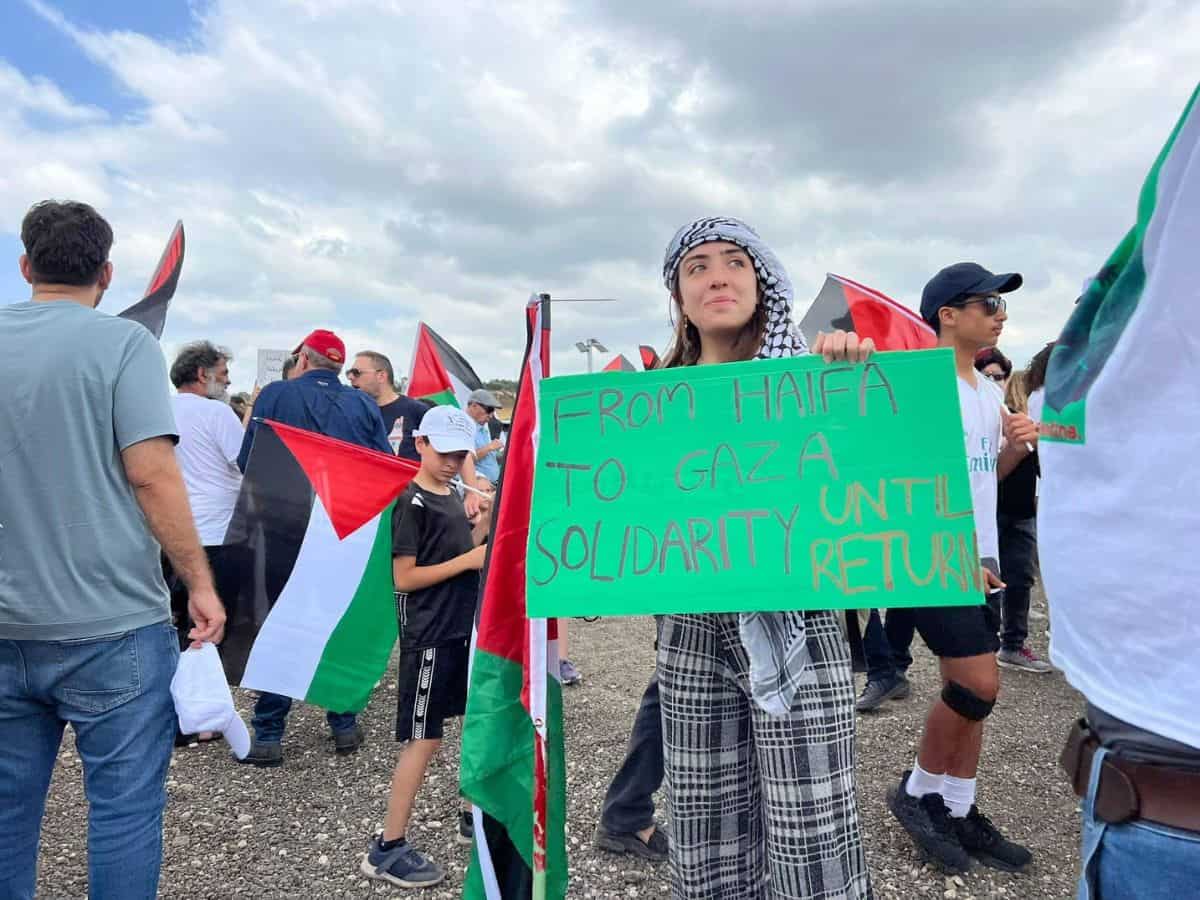
Palestinians and supporters across the globe took out marches on Tuesday, May 14, to commemorate the 76th anniversary of the Nakba, also called the “Great Catastrophe”, which marks the mass forceful displacement of Palestinians from their homes and land in Palestine in 1948 during the establishment of Israel.
May 15 is the anniversary of the ‘Nakba’ which is observed by Palestinians around the world.
Struggle for the right of return
Thousands of Palestinians who hold Israeli citizenship organised mass rallies through two villages of occupied territories, Hawsha and Al Kasayir, left by their ancestors who faced ethnic cleansing in 1948.
The march to the pre-1948 villages of Hawsha and Kasyer was organised by Palestinians living in the occupied West Bank. As per reports, the march aimed to continue demand for the right to return to their ancestral lands and homes. For centuries, Palestinian refugees and their descendants have held onto the hope of returning to their villages, despite the passage of time and the challenges they face.
March in occupied territory
Palestinians during the march chanted the slogans of ‘justice’, ‘recognition’, and ‘accountability’ for the tragic events of 1948. The supporters of Palestine around the world also participated to mark the day and demanded rights, dignity, and aspirations for freedom, and self-determination for Palestine. They also called for a probe into ongoing genocide in Gaza where over 30,000 people have been killed.
Perteintly, Israel has destroyed or severely damaged a total of 89,000 buildings in Gaza, including 104 belonging to the UN. The cost of the war in Gaza, including damage to infrastructure, roads, electricity, water networks, and agricultural land, is estimated to total 30 billion US dollars.
What caused Nakba?
The Nakba refers to the expulsion of approximately 800,000 Palestinians from their homes before and during the 1948 Arab-Israeli war.
On May 14, 1948, immediately after the end of the British Mandate, the Zionist forces declared the establishment of the state of Israel, which led to the outbreak of the first Arab-Israeli war. Nearly 800,000 Palestinians who lived in the area which became Israel fled or were expelled by Israeli forces in the 1948-49 war.
They sought refuge in several neighbouring countries and constituted at that time about half of the Palestinian people. The number has now reached about 7 million refugees, most of whom live in diaspora camps in the Jordan, Gaza Strip, West Bank, Syria, Lebanon and East Jerusalem.
The events also include dozens of massacres, atrocities and looting against the Palestinians. More than 500 villages were demolished and the main Palestinian cities were destroyed and turned into Jewish cities.
The right to return is a major demand of the Palestinians and their leaders. They base their demands on a resolution of the General Assembly of the United Nations, which was adopted in 1948.
Israeli independence day
It is pertinent to mention that the day when Palestinians observe ‘Nakba Day’, Israel celebrates ‘Independence Day’ (Yom Ha’atzmaut). While Israelis celebrate the establishment of their state, Palestinians mourn the loss of their homeland and the destruction of their society.
Israelis celebrate the day with festivities, fireworks, mass gatherings and national pride, which is also the achievement of fulfilling the Zionist aspiration for a Jewish homeland.



